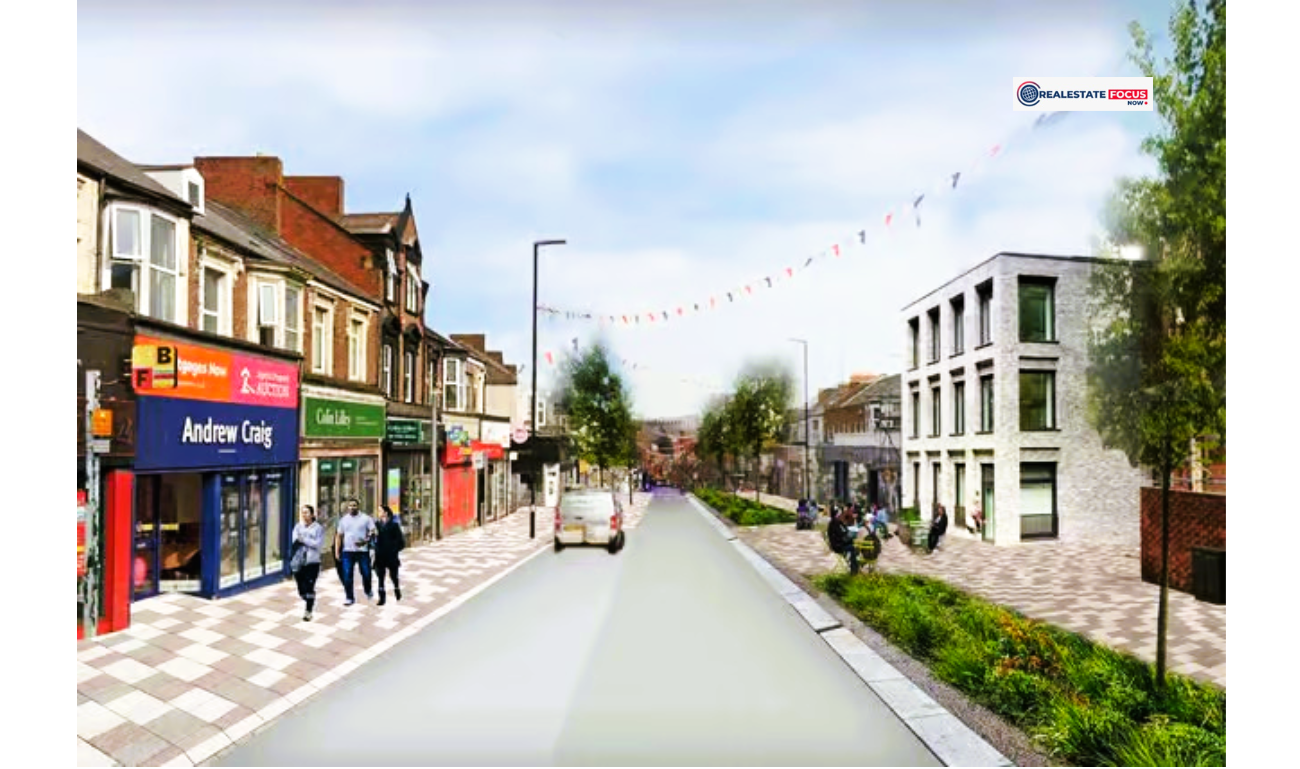

New Real Estate Project Fund Aims to Boost Mid-Market Housing
The real estate market continues to evolve as developers seek innovative ways to meet housing demand. A new project fund aims to support the development of mid-market housing, which is essential for middle-income buyers.
This initiative is designed to provide financial backing for projects that cater to a growing segment of homebuyers who are often priced out of high-end developments. By focusing on affordability and quality, the fund is expected to make a significant impact on the housing sector.
Investors and developers see this as a step toward addressing the housing gap and stabilizing urban growth. Mid-market housing is an important segment that serves middle-income buyers who need affordable yet high-quality homes.
Rising property prices have made it difficult for many families to purchase homes in major cities, leading to increased demand for reasonably priced housing. This project fund will provide the necessary financial resources to develop more affordable housing options, reducing the supply-demand gap.
With proper investment and project execution, developers can create sustainable communities that meet the needs of urban residents. Increased availability of mid-market housing can also stabilize property prices and create a balanced real estate market.
Real estate funds like this project are essential for ensuring consistent housing development. Without adequate funding, many projects face delays or cancellations, which worsens the housing crisis. Investors play a key role in supporting new housing initiatives by providing financial backing to developers.
By allocating resources efficiently, developers can complete projects on time and within budget, benefiting both buyers and stakeholders. Financial support is crucial in maintaining a steady supply of homes, ensuring that demand is met with the right kind of housing.
The mid-market housing sector is expected to benefit from strategic project planning, which includes efficient land use, cost-effective construction methods, and modern urban design. Developers will need to focus on maximizing living space while keeping costs manageable, ensuring that homes are both functional and affordable.
Infrastructure development, such as roads, public transport, and utilities, will also be a key consideration to make these housing projects more accessible. A well-planned housing project can improve the overall quality of life for residents by integrating essential amenities and services within the community.
Urbanization is driving demand for mid-market housing projects as more people move to cities for employment and better living conditions. Many cities are experiencing rapid population growth, leading to increased housing shortages and higher property prices. This project fund aims to bridge the gap by supporting new developments in key urban areas where housing demand is highest.
By targeting locations with strong economic activity, developers can ensure that homes are accessible to buyers and provide long-term investment value. A focus on sustainable construction will also contribute to long-term urban planning goals by promoting energy efficiency and environmental responsibility.
Affordability is a major concern in the real estate market as homebuyers often struggle with high mortgage rates, increasing rents, and rising living costs. This project fund will enable developers to offer homes at competitive prices by reducing financial barriers and optimizing construction costs.
Lower construction expenses, along with efficient financing options, will benefit both buyers and builders by creating a more affordable and stable housing market. Expanding the mid-market segment will help provide more opportunities for first-time homebuyers and those looking for cost-effective housing solutions.
Investors see mid-market housing projects as a stable opportunity compared to luxury developments, which often face market fluctuations. Unlike high-end properties that cater to a limited group of buyers, mid-market homes attract a broader range of homebuyers, ensuring consistent demand.
This demand helps maintain steady property values and ensures that investments yield reliable returns. Real estate funds dedicated to this sector can generate long-term growth by supporting a steady pipeline of projects.
A well-structured investment strategy that focuses on affordability, quality, and location can benefit all stakeholders involved. Government policies and regulations will influence the success of this project, as the real estate sector is heavily impacted by legal frameworks and incentives. Incentives for affordable housing, such as subsidies and tax benefits, can encourage more developers to participate in mid-market projects.
Streamlined approval processes and reduced regulatory hurdles can make real estate projects more viable and attractive for investors. Collaboration between public and private sectors will be essential in achieving housing goals, ensuring that projects align with urban planning initiatives. Regulatory support will also ensure that projects meet quality, safety, and environmental standards, protecting both buyers and developers.
Technology and innovation can improve the efficiency of mid-market housing projects by reducing costs, improving construction speed, and enhancing sustainability. Developers are increasingly using modern construction techniques, such as prefabricated building components, to lower expenses and shorten project timelines.
Digital tools, including real estate management software and data analytics, help streamline project planning and improve transparency in the housing sector. Energy-efficient designs and smart home technology contribute to sustainability and lower utility costs for homeowners, making housing developments more attractive.
The adoption of these innovations ensures that mid-market housing projects remain viable, efficient, and aligned with future housing demands. The real estate market is evolving to meet the needs of modern buyers, and mid-market housing projects are playing a crucial role in this transformation.
With financial backing from this project fund, developers can address housing shortages effectively by delivering well-planned, cost-efficient homes. Strategic planning, regulatory support, and innovative construction methods will be key factors in the success of these initiatives.
By ensuring that housing remains accessible and sustainable, this project fund represents a significant step toward creating a more balanced and inclusive real estate market.






























